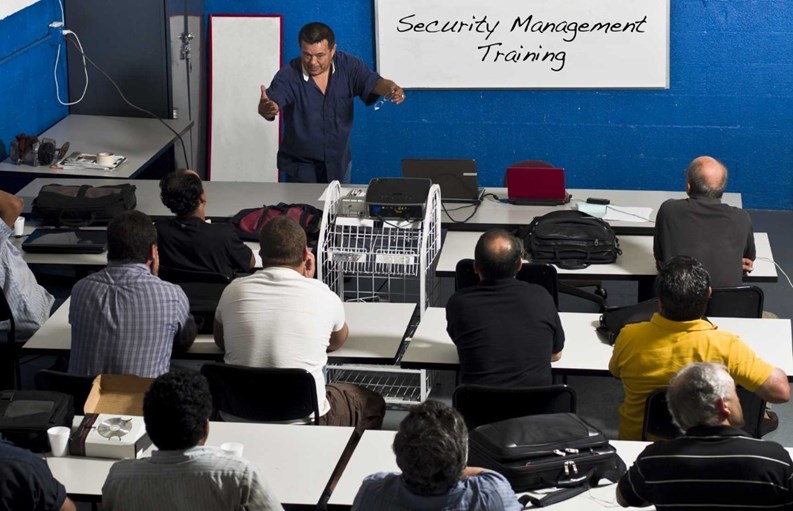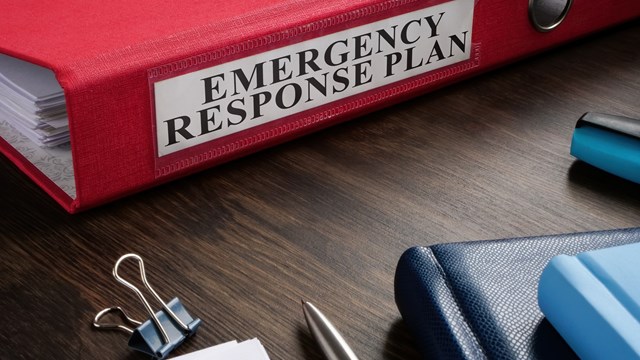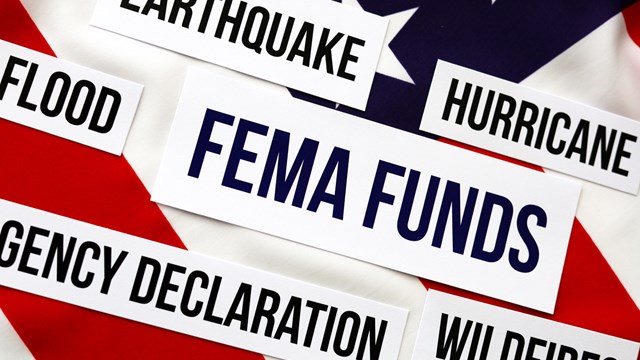Security is a big issue no matter where you live, but in a sprawling urban environment like New York City, it's toward the top of residents' list of concerns. For co-ops and condos, addressing this means not only providing residents a safe and secure place to live, but staffing it with workers who know what to do in the case of an emergency.
Boards and managing agents may be the ones to map out their building security and emergency plans, but most likely, building staff members such as the super, doorman, maintenance crew, and others will be the ones to actually carry out those plans, or be the first responders in case of an emergency.
Staying Secure
Many people today specifically seek out buildings with doormen and full-time staff because they feel safer and more secure knowing there’s somebody on watch at all times. “Doormen normally act as the front line of defense,” says Peter Grech, a longtime building super and the director of education of the New York City Superintendents Technical Association (STA). “They know the residents, and over time get to know the regular visitors to the building. They even know the habits of residents.”
There are some co-ops and condos that employ an on-site security guard or someone with similar responsibilities. While in year’s past, almost anyone could have been hired for these positions, recent legislation has stipulated that only trained professionals are doing the guarding.
“The security industry as a whole has vastly changed throughout the years,” says Timothy M. O'Brien, president of Criminal Intelligence Administration in Astoria. “The most important change within the training realm involves the enactment of the New York State Security Guard Act. Prior to the act, the industry was unregulated and untrained. The license and criminal history checks [enacted since] ensure that criminals are not entrusted to hold the ‘keys to the castle.’ The training requirement ensures at least the bare minimum is being taught by employers and that training is reinforced on an annual basis.”
According to O'Brien, building personnel working in a security capacity need to be licensed and trained under the New York State Security Guard Act. Mandated training includes an eight-hour pre-assignment course, a 16-hour on the job training course and eight hours annual training as well.
“Under New York law, any building employee involved in a security job has to be registered as a security guard,” says Mark Lerner, Ph.D, criminologist and president of EPIC Security Corporation in Manhattan, which handles security for hundreds of co-ops and condos and operates a state-certified Private Police Academy to train their guards. “Co-ops and condos should be very careful not to assign security duties to people who don’t have security registration. This is an issue where a lot of buildings get themselves in trouble.”
If another employee in the building takes on the responsibilities of the security guard and an incident happens, it could put the whole building at risk, agrees Mitchell Gitter, president of Defender Security Services, Inc. in Forest Hills. “And though buildings aren’t legally bound to provide training to those who are not specifically designated security officers, what they should do is have an awareness training of what security is, and what they should be able to recognize and report as a possible security issue,” Gitter says.
Be Aware
Depending on their training and building policy, staff members mostly act in an “observe and report” role. In a criminal incident, for example, staff members should call the police and render immediate first aid only—they should not be expected to intervene physically or put themselves at risk for injury or death. In fire emergencies, policy and procedure generally dictate that staff members should only notify the fire department and respond to help persons from a safe distance—not grab a bucket of water and wade into an inferno.
“Generally, the role of building staff in an emergency should be to first of all understand and identify that an emergency is occurring,” says Mike Beckerich, vice president of Floral Park-based FJC Security. “Two, they should understand what the proper notifications are, including calling 911 if necessary. They should be able to direct emergency response personnel to the appropriate areas of the building and give access to any areas that may be otherwise not easily accessible, as well as letting responders know where different aspects of, say, the fire system may be located, to name one example.”
According to Gitter, the most common emergency situations that occur in residential buildings are really more inconveniences than out-and-out crises. “It’s lights going out, broken locks, broken doors, suspicious people or activities in the hallways, that sort of thing. More serious situations include ambulance-aided cases where someone is injured or infirm, fires, carbon monoxide issues or gas leaks.”
“In addition to the routine emergency situations, the ‘what if’ scenarios should also be addressed with clearly written procedures,” says O’Brien. “What if a doorman answers the telephone at the desk and the caller tells him/her there is a bomb in the building…what will they do? What are building staff advised to do should a resident open an envelope in the lobby and a fine white powdery mist fills the air? Nearly all ‘what if' scenarios can be addressed with a simple and accurate procedure.”
Training Time
There are literally thousands of security/emergency training programs building administrators can choose from—how can a board/management team pick the best one for their needs and staff?
“The best place to start would be the Thomas Shortman Training Fund,” says O'Brien, referencing the series of programs overseen by SEIU 32BJ, also known as the Building Service Workers Union. “This is a valuable resource for building staff who want to learn and expand their knowledge base. The fund offers free courses and seminars to eligible members in a multitude of disciplines including emergency situations and building protection. The programs are hosted throughout the metropolitan area, have professional instructors, and best of all, are free of charge. In addition, the private sector offers training programs should a building or managing agent wish to have a customized course.”
Grech says the Civilian Emergency Response team, which are a part of FEMA, also provides a seven-week course on emergency training.
“You can have consultants come in that do training curricula who can develop any type of training curriculum you like,” adds Gitter. “There are also standardized training tapes from companies such as Private Security Training Network {PSTN) that can be viewed and/or taught by management of security awareness. There are other security companies that have training divisions that could develop a program. The community affairs unit of the NYPD will come in and give awareness seminars, and there are organizations such as the American Society for Industrial Security (ASIS) that send members a subscription to Security Management magazine that has a lot of current articles on different issues of security problems, and the latest things going on.”
Regardless of the source, “Training for all building personnel should include first-aid, CPR and responding to emergency conditions within the building,” O’Brien says. “The more training staff receive, the better equipped they will be to respond to and quell emergencies. Other designations—Certified Protection Professional, Physical Security Specialist, Professional Certified Investigator—just to name a few, do require a certain amount of continuing education credits in order to maintain current certification,” he continues. However, those designations “aren't common throughout the residential security community,” he says.
Other Roles
Making sure building staff members are up to speed on evacuation procedures, emergency reporting policies, and other safety and security measures is largely the responsibility of the manager and board.
“Superintendents and resident mangers should be training their staff and doing demonstrations as part of that training,” Grech says. “Things such as how to use a fire extinguisher and how to shut down the boilers in an emergency are important.”
The role of a managing agent is that of an on-scene commander and liaison in emergency situations to help provide emergency responders with the vital information they need about the building when they arrive on scene. Managing agents may also want to consider offering incentives to employees who complete training courses. Offering incentives may provide a cost alternative to paying for training.
“Depending upon the emergency, structural information, building layout, resident information and occupancy levels may prove necessary to save lives,” O’Brien says. “During day-to-day operations of a building, managing agents must ensure reasonable security precautions are taken to protect residents and visitors of the property. This reasonable standard is not only a moral obligation but legal as well.”
Importance of Drills
Lerner recommends that every building hold regular emergency drills because it is important for building staff to know exactly what to do should the real thing happen. “When an alarm goes off, that is not the time for your building personnel to figure out what’s going on,” he says. “They have to recognize different alarms, and know what floor the fire is on, how to operate the communication system to that floor, and what to do when the fire department arrives.”
But drills are not easy and cost money, plus you can’t have your entire population running out of the building at one time. “Drills offer the best way to test and practice the accuracy and validity of an established procedure,” O’Brien says.
Final Thoughts
Most large buildings in New York City need to have emergency plans filed with the city, to show what would happen in the case of a fire or evacuation.
“A common mistake managing agents will make are wordy procedures,” O’Brien says. “Procedures should be simple—short and to-the-point. A one-page procedure is far more valuable than pages and pages.”
“Written protocol is needed to guide the staff on what to do in any situation,” Grech adds. “Training alone is not enough.”
The most common “mistake” building staff can make is to panic. This human response may not be eliminated, but it can be reduced by holding formal training sessions, reviewing safety procedures and conducting drills and demonstrations on a regular basis. And according to Beckerich, that can be done by staying on top of the day-to-day, not-necessarily-disastrous emergencies that arise in every building. “There should be protocols in place for basic, everyday security precautions,” Beckerich says. “How visitors are admitted to the building, what kind of things can be brought into the building, under which conditions and so on. Safety has to be part of your ordinary day-to-day operation perspective as well.”
Keith Loria is a freelance writer and reporter, and a regular contributor to The Cooperator.







Leave a Comment